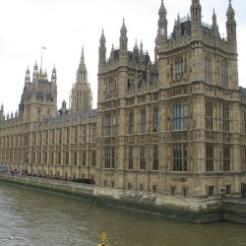The Public Administration Select Committee (PASC) has warned that the Big Society agenda will fail as civil servants do not have the skills to implement it, and there is a reluctance to do the reforms.
PASC MPs make the warning in the report Change in government: the agenda for leadership which says the Big Society policy needs "a more transparent and flexible civil service with a new role of commissioning public services from charities, social enterprises, mutuals and private companies".
However, the PASC, which has been taking evidence on the Big Society over the past year, finds Whitehall lacks these skills and little effort had been made to equip civil servants with them.
The report also says government has "failed to recognise the scale of reform required" and says as a result the Big Society agenda will fail.
The PASC says it is essential that the Cabinet Office take leadership of the reforms and coordinate the efforts in individual departments and across Whitehall as a whole.
“The scale of the challenges faced by the civil service calls for the establishment of a world class centre of Government, headed by someone with the authority to insist on delivery across Whitehall,” says the report.
Tories and childless support Big Society
Meanwhile, a survey commissioned by RSA and the Social Investment Business finds that the just over half of the public seem to support one of the key ideas underpinning the government’s flagship Big Society initiative.
Some 52 per cent of the public think people should stop blaming politicians for the quality of local services and make an effort to sort things out themselves, according to the new survey done by Ipsos MORI.
This view is most pronounced amongst those who vote Conservative, but also amongst those with no children – the youngest and oldest people polled (under 24 and over 65) were most likely to agree with the view.
RSA adds that the survey also finds that northerners are most likely to continue blaming politicians rather than acting for change whilst southerners and Londoners are most ready to take up challenge of becoming involved in their local services.
The survey has been conducted in advance of the RSA’s party conference events The Rise of the Disaffected Citizen,
The poll comes as the RSA and The Social Investment Business prepare to ask how politicians can better engage the public with politics, public services and their local communities.
These findings are based on a face to face omnibus survey of 1001 GB adults aged over the age of 15.
Formal volunteering drops
Elsewhere, the numbers engaged in formal volunteering has fallen to its lowest levels since the Citizenship Survey was begun by the Department of Communities and Local Government ten years ago in 2001.
The Citizenship Survey, which quizzes nearly 16,000 people in England and Wales, found 39 per cent volunteered at least once a year, and 25 per cent volunteered at least once a month. In 2001, the numbers were 39 per cent once a year and 27 per cent once a month. The levels steadily crept up to 44 per cent once a year and 29 per cent once a month in 2005 – and have been falling since.
This is the last year the survey will be conducted due to costs.









